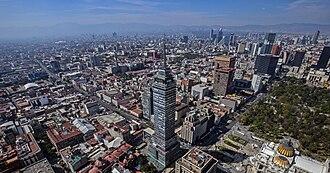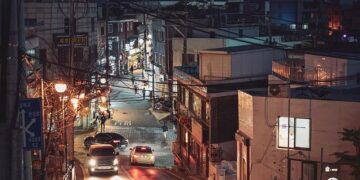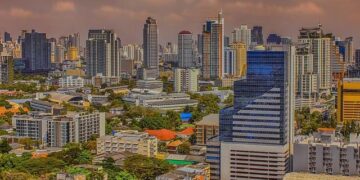Mexico City Commemorates 700 Years Since Indigenous Foundation
Mexico City is marking a significant milestone this year, celebrating 700 years since its founding by Indigenous communities. The vibrant capital, which has evolved into one of the largest cities in the world, traces its roots back to 1323 when it was originally established as Tenochtitlán by the Mexica people. This anniversary not only highlights the rich history and cultural heritage of Mexico’s Indigenous populations but also prompts reflections on the lasting impacts of colonization and ongoing efforts towards recognition and reconciliation. Events throughout the city will honor this legacy, featuring traditional ceremonies, exhibitions, and educational programs aimed at fostering a deeper appreciation for the enduring influence of Indigenous cultures on contemporary Mexican society. As the city commemorates this historic occasion, it grapples with the complex narratives of its past while looking towards a more inclusive future.
Mexico City’s Indigenous Heritage Celebrated Amidst Modern Challenges
As Mexico City commemorates seven centuries since its founding by Indigenous peoples, the event shines a spotlight on the rich cultural contributions that have shaped the metropolis. Artists, historians, and local leaders gathered to pay homage to the resilience and creativity of communities whose legacies continue to thrive, despite the encroaching challenges of urbanization and globalization. The celebration featured:
- Traditional music and dance that reflected the diverse Indigenous heritage of the area.
- Art exhibitions showcasing contemporary works inspired by ancestral traditions.
- Workshops aimed at educating the public about native languages and crafts.
However, this anniversary also prompts discussions about the pressing issues facing these communities today. Urban expansion and economic pressures often threaten the preservation of Indigenous culture and rights. Local activists are advocating for policies that ensure representation and support for Indigenous groups, emphasizing the need to address:
| Challenges | Proposed Solutions |
|---|---|
| Loss of cultural heritage sites | Increased funding for preservation initiatives |
| Language extinction | Education programs incorporating Indigenous languages |
| Economic inequality | Support for Indigenous entrepreneurship |
These discussions are critical not only to preserve the past but also to ensure a vibrant future where Indigenous voices are acknowledged and celebrated within the fabric of urban life. As the city looks back on its roots, the challenge remains to forge a path that honors the past while addressing the urgent needs of current Indigenous populations.
Reflections on the Legacy of Indigenous Cultures in Urban Development
The commemoration of Mexico City’s founding highlights the enduring influence of Indigenous cultures that shaped urban landscapes. Over the centuries, these cultures contributed significantly to the development of not just local but also global urban identity. By examining historical sites, traditional practices, and the integration of Indigenous languages, we can see how these elements continue to impact contemporary architecture and public spaces. The preservation of Indigenous heritage is crucial in this context, as it serves to remind urban planners and developers of the rich cultural fabric that exists within the urban environment. This legacy is reflected in:
- Architectural Styles: Integration of Indigenous designs in modern buildings.
- Public Art: Murals and installations that celebrate Indigenous histories.
- Cultural Events: Festivals that showcase native traditions and practices.
Additionally, incorporating Indigenous knowledge into urban development can enhance sustainability practices. As cities continue to grow and adapt to modern challenges, it is crucial to draw upon the ecological wisdom embedded within Indigenous cultures. For instance, community gardens and green spaces not only honor the city’s ancestral roots but also promote biodiversity and community well-being. A key takeaway from the festivities is:
| Element | Indigenous Contribution |
|---|---|
| Urban Planning | Use of natural landscapes |
| Water Management | Traditional techniques for sustainable use |
| Cultural Identity | Preservation of languages and rituals |
Recommendations for Preserving Indigenous Identity in a Globalized City
In a rapidly globalizing Mexico City, the preservation of Indigenous identity is paramount to ensuring that the rich cultural tapestry of its original inhabitants remains vibrant. Key strategies for safeguarding these identities include:
- Cultural Education: Implementing educational programs that emphasize Indigenous history, languages, and traditions in schools can empower future generations.
- Community Engagement: Strengthening involvement with local Indigenous communities through workshops, festivals, and collaborations can foster a sense of belonging and pride.
- Artistic Platforms: Supporting local artists and cultural expressions that reflect Indigenous heritage ensures that these voices are heard in a bustling metropolis.
- Policy Advocacy: Advocating for policies that protect Indigenous lands and rights is essential; this includes supporting local governance that respects traditional practices.
Additionally, leveraging technology and social media can amplify Indigenous narratives and connect communities globally. Initiatives can include:
| Initiative | Description |
|---|---|
| Online Platforms | Creating virtual spaces where Indigenous stories and art can be shared helps in reaching wider audiences. |
| Documentaries | Producing films that highlight Indigenous histories allows for educational outreach that resonates with a global audience. |
| Social Media Campaigns | Engaging posts that celebrate Indigenous culture can raise awareness and build solidarity across communities. |
Wrapping Up
In marking 700 years since the founding of Mexico City, the celebration serves not only as a tribute to its rich Indigenous heritage but also as a reminder of the resilience and vibrancy of cultures that have flourished in this dynamic metropolis. The events that unfolded throughout this anniversary year showcased the importance of recognizing and honoring the city’s complex history, while also reflecting on the challenges and achievements of its diverse communities. As Mexico City continues to evolve, the echoes of its past resonate in its contemporary art, cuisine, and social movements, illustrating a living tapestry that unites its people. This milestone not only commemorates a significant historical event but also paves the way for ongoing dialogues about identity, inclusion, and the future of one of the world’s most populous cities.












Did a Restorer Secretly Paint Italian Prime Minister Giorgia Meloni Into a Historic Church Fresco?